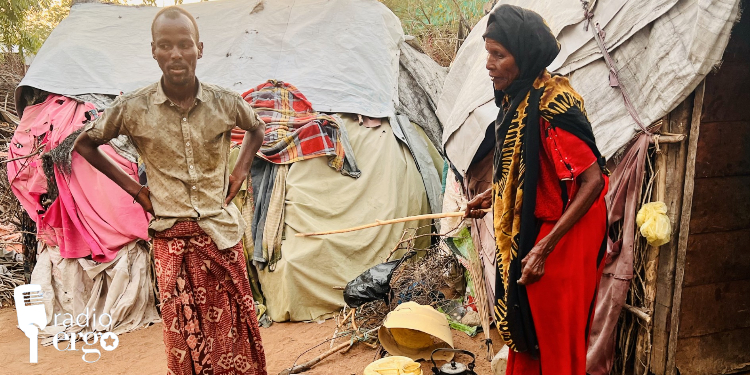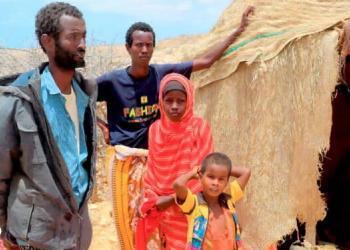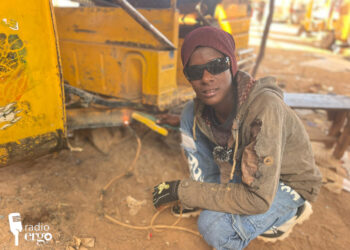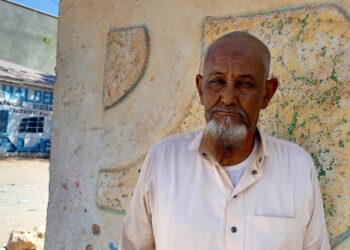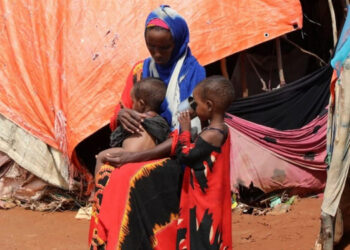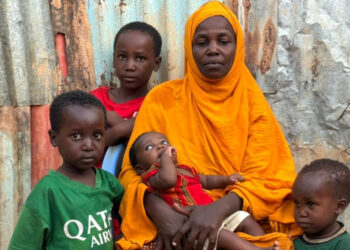(ERGO) – Hundreds of people with mental illnesses in need of specialised care and assistance are being locked up, left to roam, or otherwise abandoned in the Somali refugee camps in Dadaab in Kenya, where there are no facilities to help them and families are overwhelmed.
Two brothers, Ali Isaaq Ali, 40, and Mohamed Isaaq Ali, 35, both suffering from mental illnesses, are in the care of their 70-year-old mother, Adey Sagar Samow, who can’t cope.
Ali has been confined in an isolated shelter, separated from his mother and brother, after repeated violent outbursts that endangered their lives.
“The reason he’s locked up is that he tries to kill me. He can’t stand to see me or his brother. One night he attacked us, thinking his brother was someone else. If God hadn’t protected me, I’d be dead by now,” Adey told Radio Ergo’s local reporter.
Ali has never received any medical attention and his mother, who says she has no money for medical treatment, is too frail to manage him at home. She decided the only option was to isolate him, leaving him tied up under a crude shelter that provides little protection for the weather.
She wishes her sons could recover, she says, but the lack of support has left her in deep sorrow.
Before falling ill, Ali supported his wife, three children, and his elderly mother working as a porter with his handcart. However, his wife left out of fear after his mental condition worsened nine years ago.
Since then, he has been mostly left tied to a tree.
Mohamed, his younger brother, stays mostly indoors, chewing scraps of leftover khat that he collects from the market.
He, too, has never received treatment. He was once a hardworking man who earned a living transporting firewood, but after falling ill seven years ago, his wife left him with their two children.
Their mother’s hardship deepened after both sons became ill. The family depends on UN World Food Programme food rations known locally as bamba chakula, currently 24 kilos of rice, four kilos of maize, and eight litres of oil, that are distributed every two months in the camps.
Adey says the supplies last only two weeks, forcing her to beg for food from neighbours.
“We used to live on the food rations, but they’ve reduced it and giving us the cash. Now I go to the market and beg. Someone gives me 20 shillings, another 50. What else can I do? I’m old and can’t fetch firewood. I live only by God’s mercy.”
Adey’s family fled Basra village in Salagle district, Middle Juba, in 2011 after severe drought destroyed their 10-hectare farm and livelihood.
Meanwhile, 22-year-old Isse Abdullahi Abdi wanders barefoot and shirtless around Hagadera market, visibly weak from exhaustion and malnutrition.
His father, Abdullahi Abdi Hussein, says he took Isse to the mental health unit at Hagadera hospital, but the medication provided brought no improvement. He believes his son’s illness worsened due to neglect after his mother left when he was still young.
“The kids harass him. I work all day and return home in the evening. If I lock him inside, he won’t have food. Kids break the lock, and he ends up walking around naked while they mock him. That’s how he lives,” Abdullahi said.
Isse only comes home at night to sleep.
“He loved his mother deeply. Even when we were together, he trusted her more than anyone. When we separated, he began to change. Now he calls her name every night, saying ‘mother, mother.’ Even when I bring him food, he refuses it and says, give it to my mother.”
Abdullahi earns about 10,000 Kenyan shillings ($77) a month transporting water in the camp using a donkey cart. He brought the family to Dadaab from Kismayo in 2011 due to insecurity in Somalia and his son’s worsening condition.
According to Dr Hassan Aafi Malim, a general practitioner at Hagadera Hospital and private Aafi Clinic, mental illnesses among youth have risen in the camps over the past three years. He links the rise to poverty and widespread drug abuse.
He estimates that there are at least 500 people with serious disorders in need of help.
“Many people, men and women, use drugs such as hashish and khat. When used for a long time, they seriously damage the brain. The most harmful one we’re seeing now is khat,” he said.
Dr Hassan added that stigma and harsh treatment including being chained up and isolated worsened the conditions of those already with mental illness.
Mental health facilities in Dadaab provide outpatient services only and there are no facilities to handle in-patient care.

